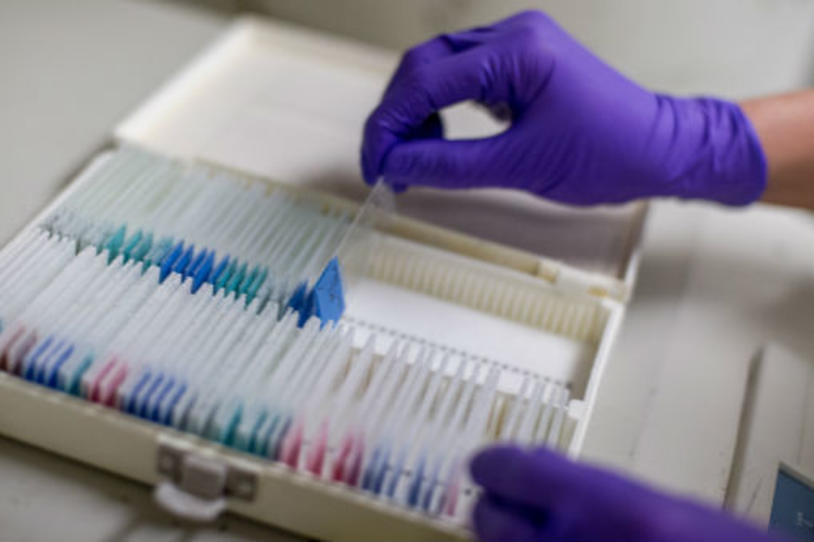
You've likely heard of alpha-synuclein and LRRK2, two of our most promising targets for a therapy to slow or stop disease progression. In recent years research into another protein and its genetic partner with links to Parkinson's has expanded, offering another avenue to avoiding or treating the disease.
Here we introduce the glucosidase, beta, acid (GBA) gene and the protein glucocerebrosidase (GCase).
How do GBA and GCase play a role in Parkinson's disease?
Mutations in the GBA gene are associated with increased risk of Parkinson's disease. GBA mutations are also notably the cause of Gaucher's disease, a disorder where fatty substances build up and cause enlarged organs.
The GBA gene directs the production of the GCase protein, which helps break down fats and other proteins. GCase plays a role in the garbage disposals of the cells, called lysosomes. Consider GCase a part in the disposal and the GBA gene the factory that makes the parts. When something at the factory malfunctions, it's not able to make enough garbage disposal parts. Same thing with the GBA mutation -- lower levels of GCase.
Lower GCase levels are associated with more clumps of the protein alpha-synuclein. Those clumps, called Lewy bodies, are the hallmark biology of Parkinson's and are thought to cause brain cell death. It may be that without enough GCase to dispose of the alpha-synuclein, it builds up and harms the cells.
What is MJFF doing to develop new drugs against this target?
Researchers believe that increasing GCase activity will help avoid and/or dispose of Lewy bodies and protect brain cells. The Michael J. Fox Foundation is funding many projects to develop and test drugs to do just that.
There's still a lot to learn about this target, though. MJFF also is supporting research to understand more about the pathways of GCase and its connection to alpha-synuclein. Studying people with the GBA mutation can help investigators track the pathology and characterize the nuances of this subset of Parkinson's disease. The MJFF-led Parkinson's Progression Markers Initiative is recruiting people who may have GBA mutation.
What if you don't have the GBA mutation?
GCase levels may be affected by factors other than mutations in the GBA gene. And even if patients don't have low GCase levels, it might not be harmful to increase them above normal, helping to dispose of Lewy bodies. So therapies against this target may help people with so-called idiopathic or sporadic (cause unknown) Parkinson's.
Learn more about the genetics of Parkinson's by watching a recent webinar.
